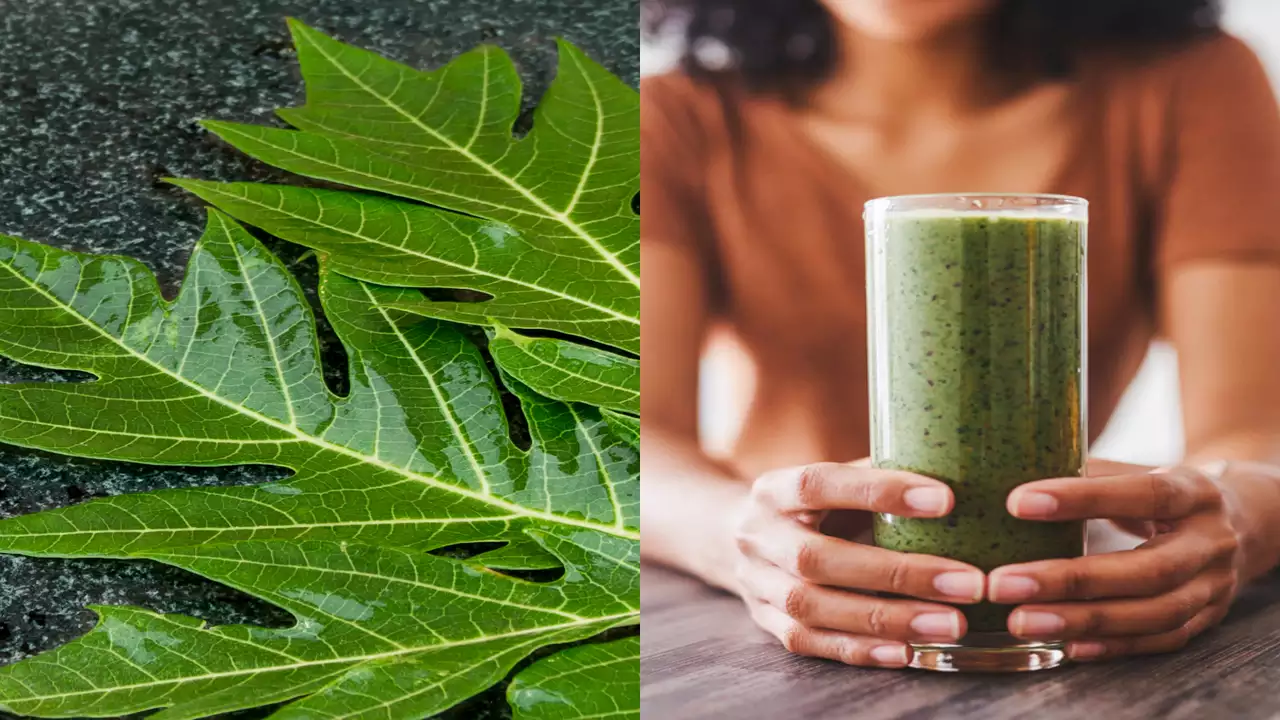Health benefits of Pawpaw leaves: When I was a child growing up, my grandmother had a cure for almost everything—and surprisingly, it almost always came from the backyard. One of her favorites was pawpaw leaves. Not because of its taste but its functionality.
Anytime someone in the house caught a fever or had digestive troubles, she’d send me out to pluck a few of the large, jagged leaves from the papaya tree beside our house. She’d boil them into a bitter tea.
Back then, I didn’t understand the value of what seemed like just another cup of hot bitter tea. But today, science is beginning to confirm what traditional wisdom has known all along: the health benefits of pawpaw leaves are real—and they might just be the natural remedy you’ve been missing out on.
Read Also: Walking Barefooted: Why It Could Save Your Life
🌿 What Makes Pawpaw Leaves So Powerful?

The Carica papaya plant, commonly known as pawpaw or papaya, is best known for its sweet, tropical fruit. However, its leaves are a lesser-known treasure trove of medicinal properties. Rich in bioactive compounds like papain, flavonoids, alkaloids, and antioxidants, pawpaw leaves have been used for centuries in traditional medicine systems across Africa, Asia, and South America.
As both an advocate of natural remedies and a researcher passionate about plant-based health, I’ve explored various studies and firsthand experiences that reveal how these leaves are far more than old wives’ tales.

🩸 1. They Can Increase Platelet Count in Dengue Patients
Let’s start with one of the most well-documented benefits. In places like India, Sri Lanka, and Nigeria, pawpaw leaf juice is commonly used to support patients with dengue fever, a mosquito-borne virus that causes dangerously low platelet levels.
A 2011 study published in the Asian Pacific Journal of Tropical Biomedicine found that patients treated with pawpaw leaf extract showed significant increases in platelet count within 24–48 hours. Researchers believe this is due to the leaf’s ability to support bone marrow function and immune activity.
It’s this kind of evidence-based support that makes pawpaw leaves not just a traditional remedy, but a potentially life-saving one in certain contexts.
🔥 2. Anti-inflammatory and Antioxidant Powerhouse

When I finally tried pawpaw leaf tea as an adult (admittedly with my nose pinched), I wasn’t expecting much. But after a few days of regular use, I noticed something surprising—less joint stiffness and a calmer gut.
That wasn’t a placebo. Scientific analysis shows that pawpaw leaves are packed with anti-inflammatory compounds and antioxidants like vitamins C, E, and beta-carotene. These nutrients help neutralize free radicals, reduce oxidative stress, and may even slow down cellular aging.
For people battling chronic inflammation—from arthritis to autoimmune conditions—pawpaw leaves might offer a simple, natural form of relief.
💡 3. Support for Digestive Health
Anyone who’s struggled with bloating, indigestion, or acid reflux knows how uncomfortable it can be. Pawpaw leaves contain digestive enzymes like papain and chymopapain, which help break down proteins and ease digestion.
Traditional healers have used pawpaw leaves for centuries to treat ulcers, reduce gas, and cleanse the gut. In our modern diet, where highly processed foods disrupt the microbiome, this ancient remedy could be a gentle and effective reset.
🛡️ 4. Strengthening Immunity the Natural Way
In today’s world, where immune health has taken center stage, pawpaw leaves offer an accessible way to boost your body’s natural defenses. With their rich supply of vitamin A, C, and essential phytochemicals, these leaves help support immune function at a cellular level.
Whether you’re recovering from illness or just trying to stay ahead of seasonal bugs, adding pawpaw leaf tea to your routine could provide an extra layer of protection.
Read Also: NSAIDs and Stomach Ulcers: Understanding the Risks and Exploring Safer Pain Relief Options
🧬 5. Possible Anti-Cancer Properties
Perhaps one of the most exciting areas of research is the potential anti-cancer activity of pawpaw leaves. Preliminary studies have shown that certain compounds in the leaves may inhibit the growth of cancer cells, particularly in breast, cervical, and prostate cancers.
While this doesn’t mean pawpaw leaves are a standalone cure, it’s a compelling argument for their use in supportive or preventive care, under the guidance of a qualified health professional.
🩺 6. Helps Regulate Blood Sugar Levels
Animal studies have suggested that pawpaw leaf extract can lower blood glucose and improve insulin sensitivity, making it a promising natural aid for those managing type 2 diabetes.
As someone with a family history of diabetes, this piqued my interest. While more human studies are needed, the evidence so far supports the use of pawpaw leaf tea as part of a holistic approach to blood sugar management.
⚠️ A Note of Caution (Because Natural Doesn’t Mean Risk-Free)
While the health benefits of pawpaw leaves are compelling, it’s essential to use them wisely:
- Pregnant women should avoid pawpaw leaves due to possible uterine-stimulating effects.
- People on blood-thinning or diabetic medication should consult a doctor first.
- The juice is very bitter, so start small (1–2 tablespoons per day if you’re new).
☕ How to Prepare Pawpaw Leaf Tea

Simple Recipe:
Boil 5–7 medium-sized pawpaw leaves in 1.5 liters of water for 15–20 minutes. Allow to cool, strain, and drink half a cup twice a day. Store in the fridge for up to 2 days.
From the dusty paths of village life to the clinical corridors of modern research, pawpaw leaves are finally getting the recognition they deserve. What was once considered a bitter “bush remedy” is now seen as a powerful natural ally for supporting immunity, digestion, inflammation, and even chronic disease prevention.
As I sip a warm cup of pawpaw leaf tea today, I think of my grandmother—and how right she was all along. These really are the magical leaves you’ve been missing out on.



